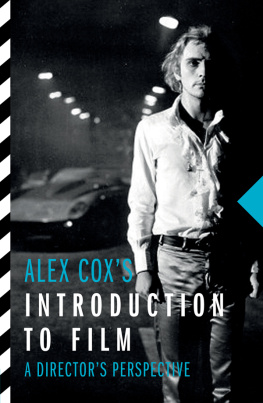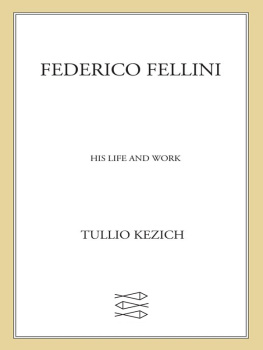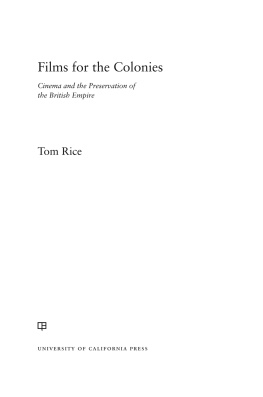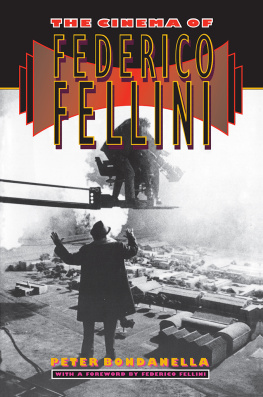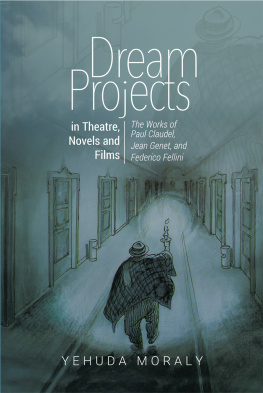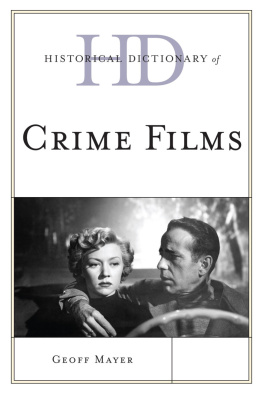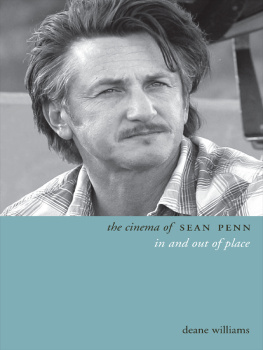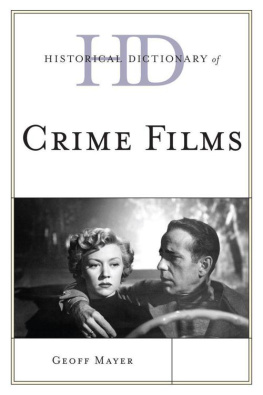

2015 by Manoah Bowman
Fellini: Eye of the Sixties 2015 Gregor Meyer
Fellini in the Sixties: Design as Identity 2015 Cory Milton
Photographic Editor David Wills
Photo captions by Gregor Meyer
Published by Running Press,
A Member of the Perseus Books Group
All rights reserved under the Pan-American and International Copyright Conventions
Printed in China
This book may not be reproduced in whole or in part, in any form or by any means, electronic or mechanical, including photocopying, recording, or by any information storage and retrieval system now known or hereafter invented, without written permission from the publisher.
Books published by Running Press are available at special discounts for bulk purchases in the United States by corporations, institutions, and other organizations. For more information, please contact the Special Markets Department at the Perseus Books Group, 2300 Chestnut Street, Suite 200, Philadelphia, PA 19103, or call (800) 810-4145, ext. 5000, or e-mail .
Library of Congress Control Number: 2015944178
E-book ISBN 978-0-7624-5839-4
9 8 7 6 5 4 3 2 1
Digit on the right indicates the number of this printing
Edited by Cindy De La Hoz
Typography: Neutra and Titillium Web
Running Press Book Publishers
2300 Chestnut Street
Philadelphia, PA 19103-4371
Visit us on the web!
www.runningpress.com
This book is dedicated to three women who changed my life: Shelley Brocksmith Toth, Laura Owen Mbow, and Christy Read Thierbach.
CONTENTS

Anita Ekberg, 1956.
Federico always loved beautiful womenand I was a beautiful woman! Of course he wanted me in his film, La Dolce Vita. It was a match made in heaven!
He didnt write scripts. He just imagined the sequence of images he wanted for his film and told us, the actors, to improvise within that frameworkwell, more or less! Nothing like this happens in filmmaking today. That was, indeed, another world. I wish that young people, who virtually live through the Internet nowadays, could know what it was like at the time. What it was like to work with Federico, to be a star in Rome, where everyone loved me. When it was possible to walk freely down the Via Veneto without worrying, even with the paparazzi calling you by name: Anita, look this way! Click! Anita, an autograph please! Click! Click! Click!
Federico and I were happy in each others company and on the set. I helped to make his name and he made me even more famous. Giulietta, his wife, was very jealous, but I rarely saw her.
Fellini was an artist, an eccentric personality and egocentric. He courted women in a platonic way. To be honest, I never quite understood his relationship with women and sex. We were good friends. He would phone me, Anitona, lets go out for lunch, or he would come by my house in the countryside, near Rome. I was good at preparing some special gourmet dishes and he was a bon viveur. We clicked glasses and drank the wonderful local wine together.
All my love to the young of today, and to the now older boys and girls who knew us and enjoyed life in the sixties, and to those who find out about us through this beautiful book.
Thank you,
ANITA EKBERG, Rome, 2014
Interview with ANITA EKBERG
How did you get the role in La Dolce Vita?
ANITA EKBERG: Federico saw me driving around in my Mercedes 300 SL so he contacted my agent, William Morris, who had an office in Rome. I asked, Who is Federico Fellini?
Was the scene in the fountain from La Dolce Vita scripted or improvised? How did you feel about shooting that scene?
AE: It was improvised. I often walked barefoot and cut myself. The Trevi Fountain was nearby and I washed my foot in the water. This was August 1958 or 59. Thats how Federico got the idea, but he shot the scene in winter.
What is the main difference between working on Hollywood studio films and the Italian ones?
AE: Filming in Hollywood was very well organized. I was so surprised when I was told that Fellini had no script to give me! He told us what he wanted us to do once we were on the set.
Did you participate in the choosing of makeup, wardrobe, and stylingor was that all preplanned by Fellini?
AE: I chose it all.
Your look in the film has become iconic and has been referenced by many designers, including Guess, Thierry Mugler, Alexander McQueen, Dolce and Gabbana, Fendi, Versace, and Tom Ford. Are you aware of the extraordinary influence your look and costuming in La Dolce Vita has had on todays fashion?
AE: Yes. I particularly notice it with the styling of the actresses, and also the supermodels in the magazine ads and editorials.
Did you feel any chemistry with Marcello Mastroianni? Did you remain friends after filming?
AE: No chemistry. He spoke very littlenot only with me but with everybody. He drank, smoked, and stayed in his dressing room.
Once the film was released, certain people in the church and the courts and the censorship boards threatened to pull the film. Fellini was labelled a public sinner. Did you feel any of that pressure?
AE: No. Not at all.
It is written that Fellini coined the term paparazzi. Is this true? Had you ever heard of that expression before La Dolce Vita?
AE: Yes, he invented the word during the filming. I had never heard it before. One of the news photographers in the film is named Paparazzo. The word is supposed to suggest the annoying sound of a camera shutter, or a buzzing insect.
Had you experienced the paparazzi in other countries like America? Or was that more singular to Italy at the time?
AE: Singular to Italy, but now of course it happens everywhere.
Fellini notoriously dubbed all of his films. He even dubbed his Italian language films in Italian. Did you ever have to do voice-over work for either La Dolce Vita or Boccaccio 70?
AE: No. Never.
Did you keep any mementos from your working relationship with Fellini? Did you keep your scripts?
AE: I had no scripts. Anyway, thieves took many of my belongings.
Did you remain in contact with Fellini after Boccaccio 70?
AE: I was never once invited to Fellinis home, though I made four films with him! Yet he came to my house.
So, when was the last time you saw Fellini and do you have any memories you care to share about that experience?
Next page

